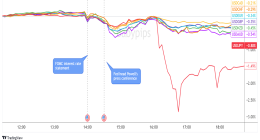
Over the years, Aiza Bolo, a 36-year-old housewife in the Philippines, has come to depend on the $550 her stepbrother sent her each month from his job in Dubai.
When the pandemic struck and the income from a fruit stand her parents own dried up, her stepbrother began sending as much as $950 a month. That enabled her to keep buying medication for her parents and purchase a laptop and internet connection so that her 13-year-old son could continue his schooling online.
“What Justine sends is more than just money. It is a lifeline for us,” Ms. Bolo said. “There was barely any income during the pandemic, so we all relied on him.”
Funds that migrant workers send home—known as remittances—have long offered millions in the developing world critical support, paying for needs including schooling, shelter and healthcare for relatives back home.
Many of those migrant workers continue to send money back, often despite their own economic difficulties, providing financial cushions in countries where Covid-19 cases are still high, vaccines are slow to arrive and the economy is struggling.








